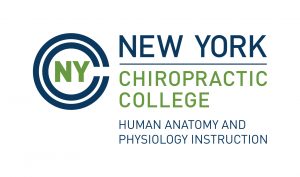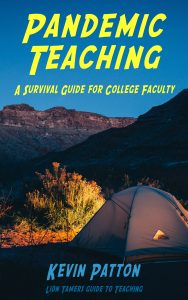The Cheater! Academic Integrity in Remote Learning
TAPP Radio Episode 81
Episode
Episode | Quick Take
Cheating has become a concern in remote teaching. Host Kevin Patton discusses some approaches and best practices for preventing cheating, detecting cheating, and prosecuting cheating.
- 00:52 | The Cheater
- 04:00 | Academic Integrity
- 20:26 | Sponsored by AAA
- 21:54 | Consequences
- 32:22 | Sponsored by HAPI
- 33:20 | Remote Cheating
- 42:50 | Sponsored by HAPS
- 43:41 | Advanced Anti-Cheating
- 51:34 | Staying Connected
Episode | Listen Now
Episode | Show Notes
Look out for the Cheater. He’s gonna build you up just to let you down …Tough luck for the cheater. Too bad for the fool-hearted clown. (John Krenski)
The Cheater
3 minutes
Cheating in remote tests and other online work has become a topic of discussion in higher education recently. Here’s an intro to the topic—and to this episode.
- Promoting Academic Integrity in Our Course | Episode 25
- An ed-tech specialist spoke out about remote testing software — and now he’s being sued | Faculty, staff, and students say they’ve had enough (online article) my-ap.us/3n1bOB6
Academic Integrity
16.5 minutes
One way to approach “the cheating issue” in our courses is to promote a culture of academic honesty from the start. But how do we do that? Kevin shares some practical tips you can use for a comprehensive approach to creating and maintaining a culture of professional and academic integrity in your A&P courses (or any courses, really).
-
- What the Best College Teachers Do (the Ken Bain book mentioned in this episode)
- The Syllabus Episode (mentioned several times in this podcast)
- Academic Integrity (A special topic page at The A&P Professor website; includes additional information and links to resources)
- Why be honest? (about academic integrity; for students)
- Kevin’s Academic Integrity statement (This is a statement I have used in my course syllabi. You are welcome to adapt it according to your own course and institution’s needs. It’s an example to get you thinking about actively promoting honesty.)
- Kevin’ Academic Integrity Case Study handout/activity (This document is an example of an in-class activity that I use to promote discussion of academic integrity. It’s a handout used for small group discussions. You can adapt it to fit your needs, per the attribution/share-alike license enclosed in the document.)
- Frank O’Neill @growgraymatter (Turn on your “Frank O’Neill filter.”)
Sponsored by AAA
1.5 minutes
A searchable transcript for this episode, as well as the captioned audiogram of this episode, are sponsored by the American Association for Anatomy (AAA) at anatomy.org.
Don’t forget—HAPS members get a deep discount on AAA membership!
Consequences
10.5 minutes
Even though we should empathize with students in how we handle cheating, compassion dictates that we also hold them accountable.
- Using Media in Our A&P Course – Advice From Barbara Waxer | Episode 28
- Using copyrightable materials in teaching (Some good practical advice from the University of Minnesota Libraries. But ask your own librarians for help. And don’t forget, I’ve got an upcoming episode with an expert!)
- Testing as Teaching (this seminar at The A&P Professor website shows you how I use Respondus test editor, one of many available test editors that can also easily produce multiple versions of a test)
- Caring for Students Helps Them Succeed (the episode where I focused on “that empathy thing”)
- Cheating in College: Why Students Do It and What Educators Can Do about It (a book you might find to be helpful)
Sponsored by HAPI Online Graduate Program
1 minute
The Master of Science in Human Anatomy & Physiology Instruction—the MS-HAPI—is a graduate program for A&P teachers, especially for those who already have a graduate/professional degree. A combination of science courses (enough to qualify you to teach at the college level) and courses in contemporary instructional practice, this program helps you be your best in both on-campus and remote teaching. Kevin Patton is a faculty member in this program. Check it out!
Remote Cheating
9.5 minutes
In the era of pandemic teaching and post-pandemic teaching, how can we best prevent cheating? Kevin has some ideas. And they’re not new.
- Spaced Retrieval Practice | Episode 1
- Revisiting Retrieval Practice | Episode 68
- Teaching: Why (Some) Professors Are So Worried About Cheating (Supiano article mentioned in this segment) my-ap.us/2GE1lfm
- With No Study Buddies, More College Students Turn to Cheating (online article) my-ap.us/36aqHtX
- Examination cheating: Risks to the quality and integrity of higher education (journal article) my-ap.us/2IdqA8T
Sponsored by HAPS
1 minute
The Human Anatomy & Physiology Society (HAPS) is a sponsor of this podcast. You can help appreciate their support by clicking the link below and checking out the many resources and benefits found there. Watch for virtual town hall meetings and upcoming regional meetings!
Advanced Anti-Cheating
8 minutes
Perhaps we can use the effective security strategy of misdirection as we try to manage cheating in our course.. And also look at student work inside and out for signs of academic dishonesty, including Rogeting.
- Anti-Plagiarism Checker vs Rogeting – How do they work? How Plagiarism Detection Sofware and Rogeting tools actually work and what can you use to check if you’re dealing with original work or not (online article) my-ap.us/352rvll
- Rogeting: why ‘sinister buttocks’ are creeping into students’ essays (news article) my-ap.us/354VJEg
- 10 Free Anti-Plagiarism Detection Checker software tools | A list of 10 free plagiarism detection tools, applications and web-based solutions that can help you check if you’re dealing with original work or not
(online article) my-ap.us/3k94GR8
Need help accessing resources locked behind a paywall?
Check out this advice from Episode 32 to get what you need!
Episode | Transcript
The A&P Professor podcast (TAPP radio) episodes are made for listening, not reading. This transcript is provided for your convenience, but hey, it’s just not possible to capture the emphasis and dramatic delivery of the audio version. Or the cool theme music. Or laughs and snorts. And because it’s generated by a combo of machine and human transcription, it may not be exactly right. So I strongly recommend listening by clicking the audio player provided.
 This searchable transcript is supported by the
This searchable transcript is supported by the
American Association for Anatomy.
I'm a member—maybe you should be one, too!
INTRODUCTION
Kevin Patton:
Songwriter John Krenski included these lines in his mid-1960s hit song, The Cheater, “Look out for the cheater, he’s going to build you up just to let you down. Tough luck for the cheater, too bad for the full hearted clown.”
Aileen:
Welcome to The A&P Professor, a few minutes to focus on teaching human anatomy and physiology with a veteran educator and teaching mentor, your host, Kevin Patton.
Kevin Patton:
This episode is all about promoting academic integrity, and preventing cheating in remote teaching.
The Cheater
Something that I’ve been hearing a lot of talk about over the last few months now that we’re doing pandemic teaching is cheating. Most of this conversation seems to focus on tests and quizzes. If we’ve only been doing traditional on-campus teaching up until the pandemic, then we had probably settled into the classical pattern of giving closed book, closed notebook, written tests and quizzes, that we or somebody proctored carefully to prevent students from bringing in answers or from sharing answers with each other.
Kevin Patton:
But now, it’s different. If we want to proctor students, we have to well, invade their privacy in ways that we’ve never had to do before or hire companies to invade their privacy…
And maybe we’re even making students do elaborate stuff like setting up mirrors to make sure they’re not hiding some secret cheating strategy that the webcam wouldn’t ordinarily see. I don’t know, I think maybe next we’re going to have students dusted before with flour, so that we can see if they or somebody else has been moving around when they weren’t supposed to. You know what? Instead of spending my time on this podcast, or on teaching or my other activities, maybe I should be instead working on adapting some of those lie detection technologies, and invent a whole new kind of online test teaching detection system. Include things like voice analysis and heart rate or respiration monitoring, skin resistance sensors, pupil dilation. I don’t know, just put it all in there.
Kevin Patton:
I don’t want to be part of pushing the culture of teaching and learning in that direction. Not only am I concerned about privacy issues with some of these webcam or other device based proctoring technologies and student OHMs, I’m also concerned that some of the algorithms or assumptions that we use can be discriminatory against minority students and students with various challenges. And for everybody, I think it adds a layer of stress that can profoundly affect student success in that exam. And perhaps overall in the course. I just don’t want my students to feel like that if I can help it.
Kevin Patton:
In this episode, I’m going to replay some discussion about academic integrity from an episode that aired a couple of years ago, way before the COVID-19 pandemic hit. And then I’m going to add some new discussion about additional specific ways that we can prevent and manage cheating, especially now that we’re doing more remote teaching.
Academic Integrity
Kevin Patton:
Since our students are likely in an A&P course, because they’re in training for a profession, and are being held to professional norms in their practicum and clinical courses, then academic integrity is really a matter of, well, professional integrity. Maybe that’s where we should start. In Ken Bain’s book, What the Best College Teachers Do, which is one of my favorite books on teaching, he interviews a whole bunch of master teachers, people who are really well respected and well regarded by their peers and by their students to find out, well, what makes a really great college teacher. And one of the things I got out of the book is that all of those master teachers, they focus more on promoting a culture of integrity than they do on focusing solely on prevention and enforcement of rules regarding cheating and academic honesty.
Kevin Patton:
So the question is, how do we do that? What are some practical ways we can promote a culture of integrity? Well, one of the things I believe, is to talk about it. Bring it up. Now the first place we can bring it up is in the syllabus. In Episode 24 of this podcast, the Syllabus Episode, I mentioned this and I gave a link to a brief online article that I linked to from my own syllabus. And I’ll include that link again in the show notes and episode page for this episode. But you can put that into your own brief words. And you can do that in a way that is both professional and supportive rather than oh, maybe our knee-jerk response of being condescending and rulemaking.
Kevin Patton:
You may remember from the Syllabus Episode, Episode 24, that my colleague Frank O’Neill’s concern in his syllabus is that by listing all the consequences of wrong action, he’s wondering if students get the wrong idea about him. That really, he’s a very supportive and compassionate teacher, but that might not come through when our syllabus is not really casting that light.
Kevin Patton:
So maybe we can reflect on how we address academic integrity in our syllabus, and in our other course materials using our Frank-O’Neill filter, as we do that, to try and hear what we’re stating through the ears of a student, a student who’s just meeting us for the first time. I have a snippet from my own syllabus in the show notes and episode page. And it’s not perfect by any means, but it might spark some ideas for putting it into your own words. So besides the syllabus and other course documents, I think we should also talk about it in the classroom. Talk about it face-to-face with students.
Kevin Patton:
As I mentioned earlier, consider framing it as part of their training as future professionals in their careers. Many of our A&P students are going into health professions and other fields, where integrity is not only taken very seriously, it can also be a matter of life and death. When I do this with my students, I usually tell them about how my wife who is a nurse, and I always look at the state nursing newsletter when it comes in the mail. And we do that because we want to see if we know anybody who’s listed in the section that lists all the people who have been censured or lost their license or had other professional integrity issues. And as I look through those violations, a lot of them are violations that I think a lot of folks would look at them and think, “Oh, those are little violations, why are they getting hammered so hard for them?” But they’re not really. They’re not little. Things like not recording when meds were given to a patient, or misreporting the number of pills that were removed from the dispensary.
Kevin Patton:
How many students feel like what they’re doing, when they cheat in class is just a little thing? And it doesn’t really matter. But there are serious life-altering consequences in the professional setting, aren’t there? Professional censure, loss of their professional license, meaning they can’t practice anymore, they might become target of a lawsuit, there might be criminal punishments involved. And besides that, your A&P teacher, and a lot of people who know you are going to see it posted in the media.
Kevin Patton:
And that leads into a brief discussion of how integrity gets lost in the first place. There’s a lot of research that shows that dishonesty starts small and then slowly gets bigger, sometimes quickly gets bigger. But it always start small. We get into the habit of it. And soon we lose sight of the fact that what we’re doing isn’t acceptable, and that it really does have consequences. And we lose sight of our own internal slide down that ethical road, a road that is not going to serve us well and it’s not going to serve others well. We need to ask, do we really want to be unethical as health care providers? Is that the direction we want to go in? And on the flip side of that, is do we want unethical health care providers treating us or our family and friends or handling our patient records?
Kevin Patton:
This is usually one of many points where I bring up that recurring nightmare that all A&P teachers have. And don’t tell me that this has not occurred to you, having a dream where we wake up from unconsciousness, as we’re wheeled into an emergency department, or maybe we’re in an ambulance, and we wake up from unconsciousness, and we look up and we see the smiling face of a former A&P student. And now here’s where it can change a bit from one night to another, when we have this dream, it’s not always the same former student. Sometimes it’s that student who you caught cheating. And they never changed their ways. And they’re unethical. And we can imagine they’re going to take shortcuts with our care. They might steal our medicine, or they might write down lies in the patient records that they’re giving us therapies that they’re not really giving, or they’re writing down the wrong vital signs and so on. Because they’re not even taking them.
Kevin Patton:
And then in the dream, that’s when you realize that your voice can’t be heard. Maybe you have an oxygen mask on and you’re having trouble getting through and you’re screaming and yelling, “No, no, no.” And then at that point is when you realize that you’re restrained on the gurney, and you can’t move either. And so you’re panicking that this person who is dishonest is the one who’s in charge of care at a point when your life is in the balance, and then you wake up. And then sometime later, you’re going to have that dream again. So whew.
Kevin Patton:
Well, let’s get back on track here from that dream state, and onto the right track, the track of developing honesty and integrity, and off the track of making a habit of dishonesty and unethical behavior that is unprofessional behavior. Another way to promote integrity, besides having those conversations is prevention. Don’t give opportunities for cheating if you don’t have to. And I know you all probably have a whole mess of strategies that you’re using right now for prevention. Here are a few preventative measures that I recommend just to get us all thinking. One is use several versions of each test that you give in class. Now, this is really easy with online tests. But these days, it really isn’t that hard to do it for paper tests as well. There’s all kinds of test editing software out there, like Respondus, which I’ve mentioned before, and others that let you randomize tests easily. It’s just a press of a button, a few keystrokes, and you have several different versions, where the items are randomized.
Kevin Patton:
You may also have the option of randomizing choices within multiple choice items and matching items and other items where there are different choices given. So that can produce different versions of the same test. And think about starting to build up your own test bank. And that allows you to give some test items in one year, and then the next year, take some of those test items and put them, well, like in a fallow field, let them just sit there for a year or two while you introduce new items. And so you’re always rotating in items in and out in and out so that the tests become different from year to year. And add a few new ones every year, take the old items and change them up so that they’re alternate versions of those old items. Now you have more items to choose from. And they’re still asking the same kind of information, they’re still testing the same student outcomes.
Kevin Patton:
And trying to think of some completely new items. And so if you do that just a little bit every time you have a test, just add a few new items, a few new items, before you know it, you’ve got 30 years of items built up. At least that’s what happened to me, I got this huge desk bank now. And it really wasn’t much effort, because it accumulates over time. So when I give a face-to-face test, I always have three or four versions. So I hand those out in class and they look identical from a few feet away. Per student, there’s a huge risk when they try to copy somebody’s answer because they’re not really sure whether that student that they’re looking at and looking at their answer key or their answer sheet, they don’t know whether it’s really the same test or not.
Kevin Patton:
And even if they can see the item they’re looking at, it may look similar but may be a little bit different on that other student’s test. And you can do something like that for term papers, various projects like case studies and other things like that. And that is have multiple versions and swap them out from year to year or semester to semester, swap out the topics that you give, give different groups, different topics to work on different case studies, maybe. Or different term paper topics. And then pick case studies and term paper topics, assignment topics that are unique. Do a little crafting in there, and try to make them things that they’re not going to be able to easily look up online and buy a term paper that’s already written or find a case study that’s already out there somewhere, or at least not the answers to the case study.
Kevin Patton:
So there are some things that you can do to prevent cheating. And then this one, this one’s really huge, I think. This one, if you don’t do anything else, at least do this. Give them examples. I think that many students don’t know what cheating is, really. I know it’s hard to believe, but I’m convinced of it. But you are probably cheating right now, in your teaching and either don’t know that what you’re doing is wrong or if you are aware of it, you’ve pushed that awareness down deeper than your conscious level of awareness. And I’ll prove that to you in just a minute. But getting back to our students, a good example would be plagiarism. In my experience, a lot of students don’t really know what plagiarism is, at least they don’t know all the varieties of plagiarism. They might know how to do those different varieties of plagiarism, but they don’t necessarily know that what they’re doing is wrong and that it is a form of plagiarism. I think plagiarism just isn’t fully understood by a lot of people.
Kevin Patton:
So how do we fix that? We give examples. Give examples of what acceptable research and paraphrasing and quoting are. But then also give examples of things that are not acceptable, and explain things that well, like hiring a person to do your work is not legitimate. Buying a term paper online is not legitimate. And why is it not legitimate? Because those are the rules of the assignment. Those are the rules of the course. That’s why it’s not legitimate. You were told not to do that. But if all you say is don’t plagiarize, they’re not necessarily going to know that they’re breaking the rules. They need to know where those lines are. Because, well, I think that a lot of us assume that they come into our course knowing that already, and in my experience, many of them don’t. And these could even be some of your best and brightest students who just are not aware of some of those kinds of plagiarism and that it’s wrong.
Kevin Patton:
Another example that you could give would be logging in attendance for students who aren’t there. A lot of students don’t realize that’s not acceptable, and that that, in fact, is dishonest. It’s cheating. Or another example would be getting help that they’re not supposed to get. Now I give a lot of online tests, and they’re all open book and I encourage my students to consult with one another, consult with anybody they want. Do some research online to get the right answer. And when you have a test that is open as that I think a lot of students get the idea that anything goes. That there’s no dishonesty possible, but there are some lines there. For example, you can consult with other students, but it’s got to be you that enters the right answer or where the answer you think is correct. In other words, the students needs to take all of that available information, even talking with other people, and then they need to enter it in. It is not acceptable to go to the ballgame while somebody else takes your test for you. So you need to explain that to students. What is the acceptable behavior, what is not the acceptable behavior.
Kevin Patton:
You may recall that first day activity that I have my students do, I described it in Episode 24, the Syllabus Episode, so you might want to go back and look at that if you don’t remember it or didn’t listen to it in the first place. At the time, I believe I also mentioned that I give them case studies and academic honesty to work on in small groups. Here’s this imaginary scenario, here’s this imaginary student and here’s what they do in this situation. Is that acceptable or not acceptable? And then they can talk through that and then get my feedback on what I believe is acceptable, and maybe more importantly, what I would deem as dishonesty that I would act upon.
Kevin Patton:
In my first test, test zero, which I also mentioned in Episode 24, where it’s a review of information I’d like them to know coming into the course, but also in there are some questions from the syllabus. I also put in there some questions about academic honesty, so that they can get it wrong there as a test item and hopefully then they’ll realize where the lines are in terms of what is acceptable and what is not acceptable. And there’s just too many examples to give here. But these will get us started, get us thinking about how to do prevention in our class.
Sponsored by AAA
Kevin Patton:
Well, thanks to our friends at AAA, the American Association for Anatomy. We have a searchable transcript and a captioned audio gram of this episode, and every episode, to make this podcast easy to listen to for everyone, and easy to search old episodes for the topics that we want to explore right now. When I opened a recent issue of AAA’s weekly newsletter, I was pleasantly surprised to see a photo of my friend, Soma Mukopadhyay smiling back at me, there’s a feature story there about how Soma blends her level of art into teaching anatomy and physiology. And by reading the article, I found out that she and her colleague, Lisa Ruggerio-Wagner, have an open source rabbit dissection manual that they’ve created. And it’s available.
Kevin Patton:
So yeah, I went online and checked it out, and yeah, it’s amazing. More and more A&P folks are using rabbits as a dissection specimen. So this is going to be useful to a lot of us, I think. And I may never have found this, if not for my membership in AAA. You can find Soma’s story and other archive editions of the weekly newsletter, Anatomy Now, plus a whole lot of other cool stuff at anatomy.org.
Consequences
Kevin Patton:
Let’s move on to the next topic. And that is consequences. So we talked about having a talk about it, then we talked about prevention, some ideas for prevention. Now let’s talk about consequences. How are we going to handle that part of it? Well, having consequences and enforcing those consequences, I think is part of this overall scenario of helping to promote a culture of integrity, and ethical behavior. Just like in the real world, the presence of those consequences does have some effect. But really, if this is what you’re relying on to teach honesty to your students, I’m not so sure it’s going to work very well for you. I think having consequences and enforcing those consequences is just one tool. And it has to be part of a whole bigger picture of many tools being used to promote honesty.
Kevin Patton:
One of the things that we need to do relative to consequences is to be thoroughly familiar with our schools’ policies and practices. And these change from time to time. So it’s a common practice for me, where I’ll go back into the student handbook, or wherever those policies and practices are spelled out for my school, and review them again, and make sure that I know what the steps are. And oftentimes, there are several different possible scenarios or pathways that are laid out. So what I need to do is determine, before anything happens in my course, I need to determine how I’m going to likely proceed in my own course. And then the next thing I’m going to do is tell my students how I’m going to likely proceed in my own course. So I might lay that out in the syllabus, I might lay it out or during that early conversation when we’re talking about academic honesty, or more likely, I’ll do it in both places. And I’ll lay out what will happen if they’re dishonest in my course.
Kevin Patton:
A lot of schools have steps of consequences that could eventually get to a point where a student is suspended, or even expelled, or they might even get retroactive revocation of credit for the course. And if that happens that could lead to a retroactive revocation of a degree. I think it’s important to explain that look, “You might hope that all you’ll get is this small consequence or that moderate consequence, but you don’t know how things are going to proceed. You are risking this being a very, very serious consequence.” And then explain the consequences to their professional life, maybe even far into the future. I mean, do they ever want to get government or military clearance someday? And what about students that are going to end up in a job or in a field that requires strict confidentiality? Like, oh, I don’t know? Health care, maybe? Or education. I mean, there are a lot of fields like that.
Kevin Patton:
And word can get back, especially these days with so much data being easily available to employers that they might find that these things happened early on, and they might not get the job, they might not get the promotion, they might lose the job that they already have, because of this history of dishonesty and lack of integrity. And it might not be a bad idea to explain to students that you have to take steps if you catch them cheating. And why do you have to? Because it’s your job, and you love your job, and you want to keep your job.
Kevin Patton:
So you’re going to have to take steps if you catch them cheating. And if you don’t take steps, well, then word on the street is that you’re the kind of professor who looks the other way. And if word on the street is out there about your course and about how you handle dishonesty, well, there goes that job you love. And it casts a bad light on the program. And the school. And folks may get the idea that graduates from your school might be sketchy or incompetent, then everyone with credentials from your school might get painted with that same brush, and then maybe the school closes because of it. And then you and all your friends, all of whom also love their jobs are now out of work. And all your students who have a degree from that school, maybe they can’t get a job. Okay, I know, that story got a little far fetched.
Kevin Patton:
But it does illustrate the idea that enforcing consequences protects the quality of our students’ education, and it protects the value of their degree from our school. This promotes, I think, more of a group perspective on cheating. In other words, it’s not strictly a struggle between the teacher and the cheater, this is a social phenomenon. This is something that involves all of us. And that social understanding of the issue of academic honesty, is what we need to establish in our course, to maintain a culture of integrity in our course, at least that’s my view.
Kevin Patton:
Now, another strategy we have besides having the talk, making sure we’re taking preventative steps, making sure that there are consequences and that we’re enforcing consequences, another strategy is to make sure that we are modeling professional integrity ourselves. What do I mean by that? Well, here’s an example. What about copyright issues, issues of intellectual property? There are a lot of myths out there about what is legal and not legal in terms of using copyrighted material in our courses. And it’s no wonder because the law is complicated on that issue. Can we be sure that what we’re doing and how we’re doing it really does comply with the law? Do we know the ins and outs well enough to know for sure that we are not violating the copyright laws?
Kevin Patton:
For example, if we’re showing a video in class, is that really licensed for that use? Are we making fair use of it? What about copying lab activities out of a lab manual and distributing that or selling it in a bookstore? Selling course packs containing copyrighted material in the college bookstore. These are all pretty dicey and your college librarian can help you with those issues. And in an upcoming episode, I’m going to have a friend of mine who’s an expert in these matters help clarify some of these issues and maybe bust a few myths and help us find the material that we need to find.
Kevin Patton:
But let’s leave that aside and come back to the idea that we are all probably violating laws or ethical norms, without even realizing it. Like this copyright thing. Just like our students might do when they’re plagiarizing and not realizing that what they do actually is a form of plagiarism. And what if we got caught, maybe violating some copyright issues? What if there was an audit of our teaching materials and we got caught? How would we want to be treated? Well, sure, I think all of us would expect to have to take our lumps it’s like when we’re speeding a little bit over the speed limit and we get caught and we think, “Well, okay, yep, I was speeding. I hope the fine isn’t too big. And I hope this doesn’t increase my insurance rates and so on,” but we’d expect to have to take the lumps. But would we expect to be treated like we’re pond scum? Would we expect the harshest possible punishment for what we consider a minor infraction? Would we expect to be believed? That we thought, well, that we didn’t fully realize that we were transgressing the law.
Kevin Patton:
So I’m thinking, maybe we should think of that scenario a bit, and let it sink in for a minute. And then maybe we’ll approach violations of academic integrity in our course, with a bit more empathy than we otherwise might have. So yeah, I’m back to that empathy thing again. I think I’m often coming back to empathy, because, well, because I have to keep reminding myself every day to try as best I can, to put myself into the skin of my students and walk around in it for a while or into the minds of my students. It’s a struggle, for sure. Some days more than others.
Kevin Patton:
But I want to be very clear, I’m not saying that because I want to have empathy and compassion for my students, that I’m going to tolerate academic dishonesty, and that I’m not going to enforce the rules against it. Compassion requires that we hold people accountable. I just need to remember that I need to apply empathy when determining exactly what steps to take in each case, when I’m going to trigger the process of consequences, and when determining how I’m going to treat the students involved. After all, these are students who have violated my trust in them, have violated their classmates’ trust in them, and they’ve probably really provoked me, but I want to be intentional about how I react, because the way I treat them, will affect their lives going forward and will be part of what determines what professionals, what people they’ll eventually become.
Sponsored by HAPI
Kevin Patton:
The free distribution of this podcast is sponsored by the Master of Science in Human Anatomy and Physiology Instruction, the HAPI degree. You probably remember that I’m on the faculty of this program, and you know what? Not a week goes by that I don’t get some kind of feedback from our current or former learners about how what they learned in the HAPI program is helping them in their A&P teaching. Looking to power up your game in teaching A&P. When’s the last time you had a thorough review of all the core concepts of both anatomy and physiology? Or comprehensive training in contemporary teaching practice. Why don’t you check out this online graduate program at nycc.edu/hapi? That’s H-A-P-I. Or click the link in the show notes or episode page.
Remote Cheating
Kevin Patton:
Now we’re in the era of pandemic teaching. Or maybe you’re listening to this episode in a new era of post-pandemic teaching, where we’re still doing a lot of remote teaching and learning. Because now we know how to do that effectively, and we’re all used to it, and realize that we don’t have to give up social interactions with each other to do remote teaching after all. So what about preventing cheating now, in the pandemic, and post-pandemic era of remote teaching?
Kevin Patton:
Well, I think my central principle described earlier, remains intact. That is, if we put most of our anti cheating effort into developing a culture of integrity in our courses, we’re going to all do okay, not perfect. That’ll never happen. But okay, as well as any of us can expect. But as I also mentioned earlier, taking specific cheating prevention steps, is an important adjunct to that integrity culture building. Here’s some anti cheating strategies that I think work particularly well for remote teaching. For me, the big one is to open up the tests. I did that a long, long time ago, for many of my on-campus courses, as well as my online courses. And depending on which course it is, most or all of my online tests are open book, open notes, open internet, open talk with anybody you want to. The student has to enter the answer, and if they get somebody else to do that, then yes, they are cheating. And I’ll prosecute that when I find it happening. But everything else is open.
Kevin Patton:
Let’s unpack that scenario a bit. First, I’m a big fan of spaced retrieval practice as a learning strategy. It was the topic of my very first podcast episode. Oh, these many years ago. Heck, I’ve been talking about this for nearly 20 years. This is a view that has a lot of evidence to support it. So I give my students a lot of online tests, each with multiple attempts, sometimes even unlimited attempts, depending on the course. Because there are so many tests, and so many possible attempts, each one has fairly low stakes. There’s really no harm done by messing up, not on any one attempt, at least. So why bother to cheat? Since about, the only way to cheat is to have someone else do it for you, where are you going to find a competent person to do that many test attempts for you? It’s way, way easier to just do it yourself. Look up the answer if you need to, because it’s an open test. Go ahead, and by golly, you’ll be learning something by looking it up.
Kevin Patton:
I tell my students that they want to get things wrong. They want to get things wrong, and have to try over again. Because that forgetting and relearning and responding correctly this time is part of effective learning for the long-term. If we don’t make those failures, those stumbles and then correct it and come back and try again, and maybe stumble again and corrected again, if we don’t have those stumbles, then we’re not going to learn for the long-term. You know those infrequent, high stakes exams we’ve all had as students, they help us with short-term learning, but do almost nothing for our long-term learning the way these frequent stumbles and relearning and stumbles and relearning with multiple attempts will have. So my view is that by doing frequent low stakes, open online tests, we not only reduce or eliminate cheating, but the bigger payoff is better longer term learning, win-win.
Kevin Patton:
I also want to mention that many of my test items cannot be looked up easily because well, they’re application questions or other higher order test items that they won’t find, as is anywhere else. The underlying information can be looked up, but there’s a puzzle to be solved before that test item can be answered correctly. I know what some of you are thinking, because I’m faking it, and I’m not a very original thinker. So you must be thinking it too. Can’t remote students just log into one of those online services, those so called tutorial services, where a student uploads the test item, one or more experts, or maybe other students answer the item, then the students submit that as their answer on your test. Sure, they can do that. But I’m not so sure those experts or those other students will get it right, really. I’ve seen that sort of thing happen.
Kevin Patton:
But even if they did get the right answer, they still have to determine that it really is the right answer before they put it into their test for me. And they’ll have seen the right answer. And because there’s so many test attempts in my course, and because all my tests are cumulative, where they get old concepts, retest that again and again throughout the rest of the course, even if they’re using a tutor service to cheat, they’re still going to learn something. Maybe not as much, not as fast as doing it without cheating, though. I think they’ll also find, that after a while, that they can get to the answer easier and in less time by just working it out themselves. And remember, these are all low stakes, so there’s no harm done if they do mess up.
Kevin Patton:
What if they collaborate within my course? And try to share answers. Yeah, good luck with that. Everything is randomized. So that would be nearly impossible to reconstruct any one attempt of a test. But I have seen some try it. Because I have a large and ever changing bank of test items. And they pretty quickly find out, it’s easier to give up on that quest. Of course, as I mentioned earlier in this episode, this approach can be adapted to other types of assessments such as written papers, PowerPoint slide assignments, video assignments, and various kinds of other projects. If we design these projects to be unique and not easily looked up, as is, and we encourage outside collaboration and research anyway, we can change up the specifics of our assessments assignments, frequently, we can reduce the motivation to cheat.
Kevin Patton:
For example, I have a research paper assignment in which students can pick from several specific topics, they’re not likely to find other professors assigning. Then the next term, I swap those out for a different list, rotating them randomly over the course of years. Even those I use again, in a later year, I change a little bit, so the student can’t just use an old assignment, if they could find one. In a lot of STEM courses, including A&P, we tend to use classical exams as assessment tools. And these have become so ubiquitous, that we often forget that projects of various sorts can substitute for some or all of our traditional testing. Or maybe it’s not that we’re forgetting that we can do that, maybe we just don’t believe that those are valid assessments for some reason, but they are, trust me.
Kevin Patton:
In a recent column in The Chronicle of Higher Education, Becky Supiano mentioned that some STEM professors worry about preparing their students for their traditional style tests, that students are going to face at board exams. And you know what? That’s a valid concern. But I think that using this combination of, the kind of online testing that I described, which I think really prepares students for the situation of a board exam, and not only that, but I think it reduces their stress in taking computer based tests, and combine that with some alternative forms of assessments, all of this can really work well.
Sponsored by HAPS
Kevin Patton:
Marketing support for this podcast is provided by HAPS, the Human Anatomy & Physiology Society, promoting excellence in the teaching of human anatomy and physiology for over 30 years. Well, it’s official, the 2021 annual HAPS Conference will be a virtual experience. And they’ve set the dates already. It’s Sunday, May 23rd, through Wednesday, May 26th. So mark that in your calendar now. I’ll be participating and I hope to run into you there too. Watch for more information as it becomes available, and other HAPS events at theAPprofessor.org/haps. That’s H-A-P-S.
Advanced Anti-Cheating
Kevin Patton:
Okay. In all this discussion about cheating, I’ve been emphasizing that building a culture of honesty and integrity may be our best strategy. And that alone may go really far in preventing cheating, and in encouraging bystanders to turn in the cheaters. And I mentioned that using open book strategies that allow for research and collaboration during the test and mixing things up so that they can easily be shared among students, can all be effective deterrence to cheating. And maybe even enhanced learning. I think they’re almost definitely going to enhance learning. Is there anything else we can do? Well, sure. There’s always more we can do. How much and specifically what we do is going to be determined by well, our own individual approach to cheating, our students in a particular course, and things like workload, campus policies and other limitations to what we can and cannot do.
Kevin Patton:
But I do have some additional ideas to share that may spark some ideas. One is a classic security strategy and that is misdirection. You know that you can get a sign to put in your yard or on your window that says that your home is secured by Kevin’s Security Network, or XYZ Security System. But it’s not really, it’s just a sign. But having that sign can be an effective deterrent to burglars and other dishonest people. In airports, we’re led to believe that there are all kinds of safeguards present that may or may not be there on that day or during that hour or even at that airport or perhaps even in any airport ever. But the idea that they might be implemented, that they could be present probably deters a lot of bad actors.
Kevin Patton:
I remember a few years ago visiting my brother at a big chain store that he was managing. And I asked him if he had to watch all the video feeds for the dozen or so security cameras I saw in various spots scattered around the store. He just laughed and told me that only two of them were actually hooked up. And the rest were there as deterrence. So what can we use from this? Tell students, that there are a lot of ways you have to monitor cheating. And so please, please, please don’t cheat in my class. Just don’t tell them what these strategies are specifically. If asked, tell them you can’t tell them without making the strategies less effective. You won’t be lying. You can indeed check timestamps and activity monitors built into most learning management systems to spot cheating. Ask your campus learning specialists, they probably have other secret methods to watch for dishonest behavior.
Kevin Patton:
Now, here’s another secret method that I discovered accidentally a few years ago, when I thought I had seen a project that looked very familiar to me. I think I had created it before. In Microsoft Office programs, and in some other kinds of programs, you can go to the file properties have a document or slide or spreadsheet or a video or whatever. When they turn it in, you can look at those file properties and see when it was created, and by whom. And sometimes there’s ways to see who made changes and when they made the changes. And I’ve actually caught a few cheaters this way. But don’t tell your students about this. Because as soon as you tell them exactly how you’ll be watching for cheating, they’ll find a way around that specific method. And some who weren’t thinking about cheating, or were going to cheat in a more obvious way, they might get some ideas. They might take that idea and find maybe a better way to make it work for cheating.
Kevin Patton:
And that’s why I hesitate to even mention these in a podcast, because it’s like publishing bomb making instructions. I don’t want too many strategies for how to cheat out there. That works against all of us. So be careful who you share this episode with.
Kevin Patton:
Something else that I ought to mention, because the information is out there, is a form of cheating or plagiarism called Rogeting, named after the popular thesaurus, Roget’s Thesaurus. This is a method designed to trick anti plagiarism software tools. A student can take words and phrases from a source that they’re plagiarizing and use a Thesaurus to find alternate words. The idea is that the passage will mean the same thing, but with different words, so that the plagiarism detectors, the similarity analyzers won’t pick up on the fact that it’s lifted directly from another source. I’ve actually run across this a couple of times, and what tipped me off, I think what is always going to tip us off is that if a student already knows how to put information into their own words and express it, they will. That’s what they’re supposed to be doing. But if they feel like they need to copy, because they don’t know how to make words flow in a logical way, and in their own words, and then they try to Roget it, it’s going to sound really odd, because they’re just right clicking and substituting words without thinking about the flow of the writing.
Kevin Patton:
A couple of years ago, I ran across this example in an article about Rogeting and I have it in this show notes and episode page, I’ll link to this article, they found the phrase left behind was rendered instead as sinister buttocks. Left behind, sinister buttocks, yeah, I can get how you could do that by thoughtlessly using a Thesaurus. And, well, that’s just very odd to read in a student paper when it doesn’t fit the flow of the paragraph. Okay, that example would be odd, even if it did fit the flow of the paragraph. But you get what I mean.
Kevin Patton:
As I’ve heard many of my colleagues say, and which I also believe, in the end, cheating mainly harms the cheater. Cheaters eventually get to a point where their incompetence is so great, because they haven’t been learning all along, that they just cannot finish the course or their program successfully. I, like many of my colleagues, spend most of my anti cheating efforts on setting up some processes that discourage cheating, but mainly on creating and maintaining a culture of honesty and trust in our course. We’ll never eliminate cheating. All we can do is the best we can do. While we put most of our focus and effort into helping our students learn effectively, and for the long-term.
Staying Connected
Kevin Patton:
You know that I always put links in the show notes and at the episode page at theAPprofessor.org, in case you want to further explore any ideas mentioned in this podcast, or if you want to visit our sponsors. And for this episode, I have a specially big load of links. And you’re always encouraged to call in with your questions, comments, ideas. Hey, maybe some of your ideas about cheating, or anything else you want to talk about at the podcast hotline, 1-833-LION-DEN. That’s 1-833-546-6336. Or send a recording or written message to podcast@theAPprofessor.org.
Kevin Patton:
And we’d love to have you in our private online community, well away from the ads, the spam, the tracking, those algorithms that hide what and who you want to see, and those convoluted email threads. The small size of our community makes it a comfortable supportive space filled only with A&P faculty like you. We have informal live check-ins every Tuesday afternoon. And coming soon is a mini course on how to do that kind of online testing I was talking about in this episode. Just go to theAPprofessor.org/community. And I’ll see you down the road.
Aileen:
The A&P Professor is hosted by Dr. Kevin Patton, an award winning professor and textbook author in human anatomy and physiology.
Kevin Patton:
Please allow four to six weeks for delivery.
This podcast is sponsored by the
Human Anatomy & Physiology Society 
This podcast is sponsored by the
Master of Science in
Human Anatomy & Physiology Instruction 
Transcripts & captions supported by
The American Association for Anatomy. 

Stay Connected
The easiest way to keep up with new episodes is, um, wherever you already listen to audio!
Click here to be notified by email when new episodes become available (make sure The A&P Professor option is checked).
Call in
Record your question or share an idea and I may use it in a future podcast!
Toll-free: 1·833·LION·DEN (1·833·546·6336)
Email: podcast@theAPprofessor.org
Share

Kevin's bestselling book!
Available in paperback
Download a digital copy
Please share with your colleagues!
Tools & Resources
TAPP Science & Education Updates (free)
TextExpander (paste snippets)
Krisp Free Noise-Cancelling App
Snagit & Camtasia (media tools)
Rev.com ($10 off transcriptions, captions)
The A&P Professor Logo Items
(Compensation may be received)
🏅 NOTE: TAPP ed badges and certificates can be claimed until the end of 2025. After that, they remain valid, but no additional credentials can be claimed. This results from the free tier of Canvas Credentials shutting down (and lowest paid tier is far, far away from a cost-effective rate for our level of usage). For more information, visit TAPP ed at theAPprofessor.org/education















